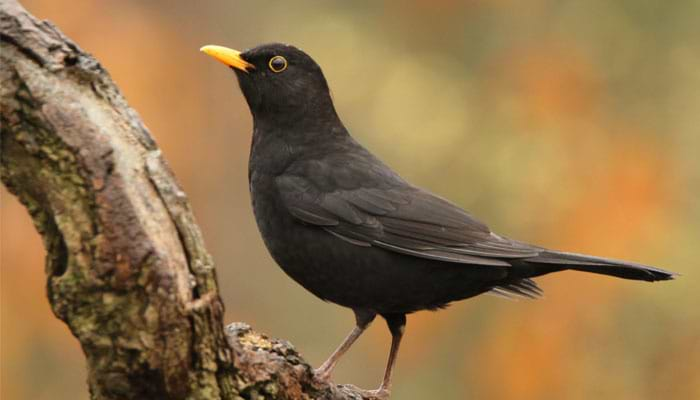
© Wouter Midavaine / Adobe Stock
English poet and novelist Thomas Hardy was famous for writing classic novels, such as 'Far from the Madding Crowd' and 'Tess of the d'Urbervilles', yet he always considered himself to be more of a poet - despite his first poetry anthology not being published until he was almost 60 years old. A Victorian realist, Hardy was critical of society, in particular, due to the declining status of rural districts of Britain and the apparent lack of importance of their residents. Early life Born in June 1840, in the rural hamlet of Higher Bockhampton in Dorset, south-west England, after moving to London as a student, Hardy became acutely aware of class divisions in society and the fact he was considered "inferior" due to his background. His father, Thomas, was a builder and stonemason, although his mother Jemima was well-educated and taught her son to read and write, educating him until he first attended school when he was eight. On leaving school at 16, he trained as an apprentice to local architect James Hicks, before moving to London at 22. He studied at King's College London and became an architect, but it was said he never felt truly at home there because of the class divide. He became involved in social reform and began reading the works of the great philosophers of the day. Unhappy living in London (partly due to not liking the city climate for health reasons), he returned to Dorset after five years and settled in Weymouth. Writing career Hardy had been writing novels for some time, but his first effort, The Poor Man and the Lady, in 1867, was never published. It was reportedly rejected by publishers because it was said to be politically controversial and reflected his thoughts on society. Sadly, no copies remain, as he destroyed it after it was rejected by five publishers. He fared much better with his subsequent novels. 'Far from the Madding Crowd', his fourth novel, published in 1874, had more commercial appeal. Set in a farming community in rural England, it depicted the life and loves of Bathsheba Everdene. Published to great critical acclaim, it is recognised as a timeless classic today. This was the start of his long career as a novelist, which also saw him write 'The Mayor of Casterbridge' in 1886, 'Tess of the d'Urbervilles' in 1891 and 'Jude the Obscure in 1895'. The latter received a negative response, as it seemed to attack the institution of marriage. Some booksellers sold it in brown paper bags because it was considered immoral. Poetry anthology When Hardy published his first collection of poems in 1898, he had been writing poetry for more than 30 years. There have been some suggestions that he stopped writing novels after criticism of Jude the Obscure, although other historians have rejected this idea. However, Hardy published only poetry for the rest of his life. He wrote a wide variety of poems, including ballads, dramatic monologues, satire and dialogue. Some poems, such as 'I Watched a Blackbird', reflected his love of rural life and nature. He loved wildlife and all animals, taking a firm stance against animal cruelty. He was an antivivisectionist whose love of all living creatures was reflected in his poetry. Poems about birds 'I Watched a Blackbird' was his observation of a blackbird going about its normal day-to-day life in the wild. He describes in intimate detail how the bird sits on a "budding sycamore", its "crocus-coloured bill" parting and closing as it feasts on the buds. Towards the end of the poem, it became apparent that Hardy was writing about nesting season. He describes how the blackbird swooped down, "seized on a stem of hay" and flew up to the trees, where his "building scheme" had begun. 'I Watched a Blackbird' was one of a number of poems Hardy wrote about birds in the late 19th and early 20th centuries. In December 1900, he published 'The Darkling Thrush', a rather gloomy depiction of the winter landscape, with its description of "bleak twigs" and the "spectre-grey" frost. He described how the "desolate" winter had driven everyone to seek solace in front of their "household fires", but then, the sound of a thrush in "full-hearted evensong of joy" suddenly lifts the narrator's spirits. He sees that the thrush is "aged, frail, gaunt and small" and marvels at how his voice nevertheless illuminates the gloom. Anti-animal cruelty As Hardy grew older, he wrote more vehemently against animal cruelty, which was reflected in his melancholy 1916 poem, The Blinded Bird. He also spoke out against the historic "sport" of "vinkenzetting", which dated back to Flemish merchants in the late 16th century. Male chaffinches were pitted against each other and the winner was the bird which emitted the highest number of calls in an hour. Hardy abhorred the practice of forcing the male birds to compete against each other. He went on to join the RSPCA, campaigning against animal cruelty until his death in 1928, at the age of 87. Sadly, during his lifetime, Hardy's poems weren't as well-received as his novels. It was only posthumously that Hardy was recognised as being one of the greatest poets of the 20th century. His verse has influenced generations of later writers. Clothing for all seasons! If you enjoy the rural lifestyle and bird watching, make sure you have the correct clothing for your pursuits. MA Grigg’s country store, in beautiful Cornwall, stocks a large range of top clothing brands such as Hunter, Joules, Barbour, Timberland and more. Please contact us for further information, or pop into our store in person, where you'll receive a warm welcome.




